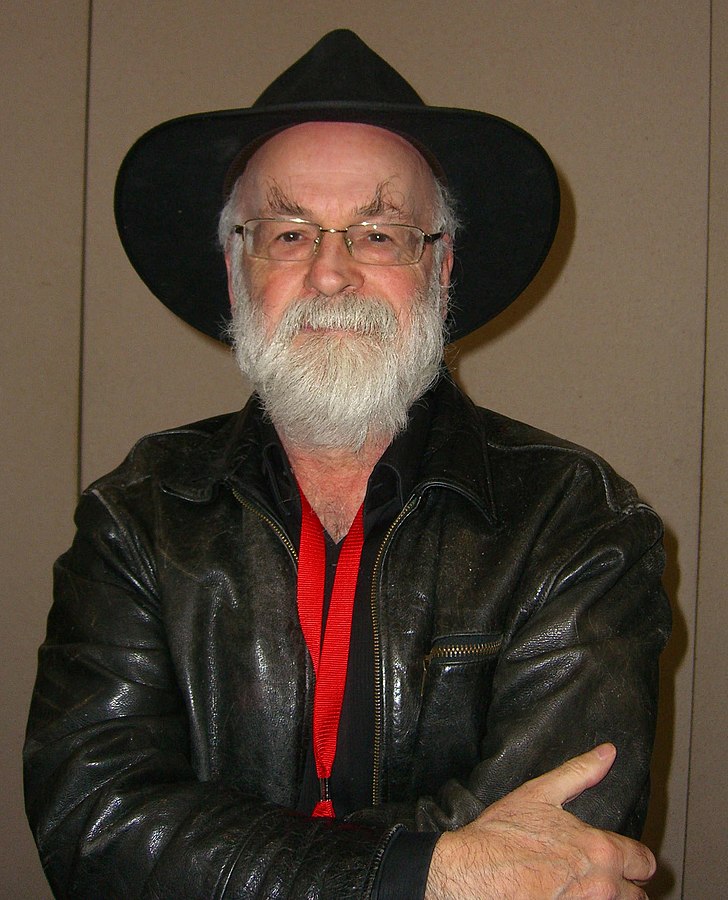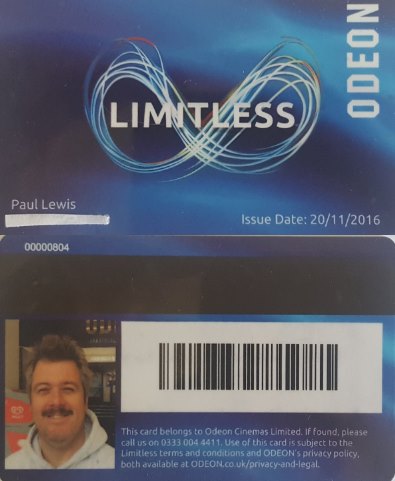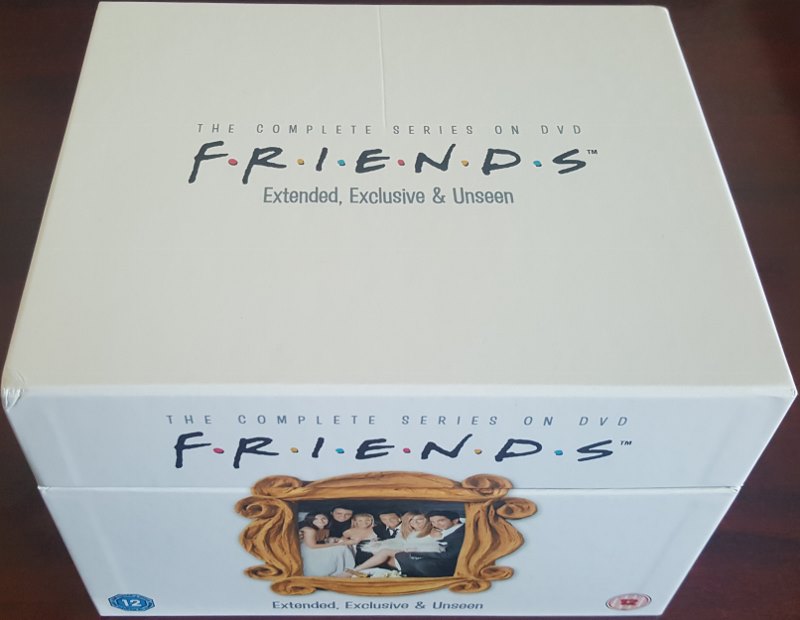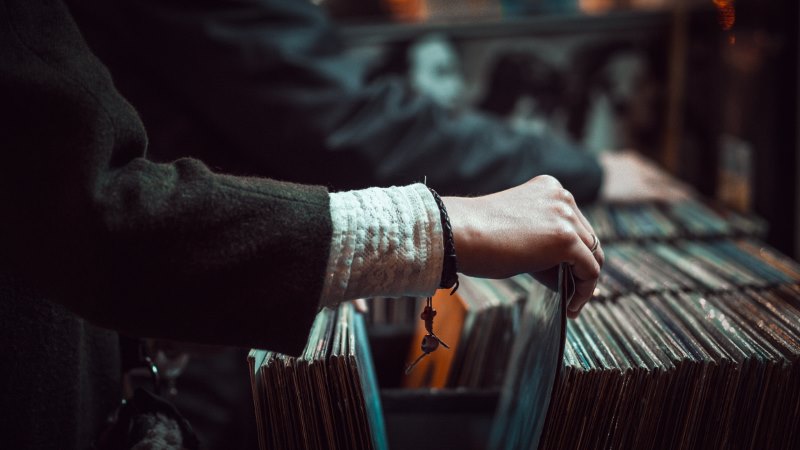I remember the first song I ever bought. I went to Woolworths and bought the vinyl single of Elton John’s 1986 live version of Candle in the Wind. Then I went home and listened to it. It was, and remains, an absolute tune. And that was how music worked in the 80s. Owning music was easy. It was obvious. But it’s not like that any more!
And I understand that a lot’s changed since then. Woolworths, for example, no longer exists. Neither did vinyl, for a long time. But vinyl’s back now, although I have no idea why. I preferred vinyl to cassette but the sound quality of CD was better than either. Even Elton John’s announced his retirement. I get that the times, they are a changin’.
But my love for the live version of Candle in the Wind, remains unmoved… The Melbourne Symphony Orchestra was playing in the background; how many songs can say that?
I liked Candle in the Wind so much that, after the world moved on from vinyl, I bought it on cassette. Then the world moved on again, so I bought it on CD. But the world hadn’t finished, and everything went digital, so I got the download from iTunes. That’s 4 times I’ve bought it so far and now my daughters look at me like I’m an idiot for buying it at all.
To be fair, my daughters are teenagers and looking at me like I’m an idiot seems to be the one thing they agree on. They do it a lot!
In this case, it seems to be because, “Daaaaad, why would you own music!?” Look of pity.
What do you mean, why would I own music? SO I CAN LISTEN TO IT!
“Owning music is soooo last week!” Eye roll. Hair flick. Flounce off to another room.

This leaves me shouting at an empty room, “Well, how does music work then?”
The room, incidentally, never answers…
Apparently, owning music is soooo last week because of Spotify. And, while I’m fully aware that other options are available, I’m hanging on by my fingernails here, so I’m sticking with Spotify.
Spotify, it seems, is a way to listen to all of the music without buying, or owning, any of it. It even seems possible to listen to all of the music without paying for any of it. This is obvious madness and I don’t need Admiral Ackbar to tell me; it’s a trap!
To listen to the free version of Spotify, you have to listen to adverts. I don’t even listen to the radio because I can’t stand the adverts; if not owning music means having to listen to adverts, that won’t work for me. You also can’t listen to this music off line, which would make long car journeys even more boring.
Surprise, surprise, Spotify also offers a premium service. For a mere £9.99 a month, I can listen to music without adverts wherever and whenever I like. But that’s still £120 a year. £720 for 6 years listening.
And the reason I mention 6 years is that, in my whole life, I’ve collected only 700 songs on to my iTunes account. And I’m ancient! These songs were 99p each, which is less than the cost of 6 years of Spotify. Even before you take into account the fact that a lot of these songs were transferred over to iTunes from my CDs.
Admittedly, I’m a little unusual in that I only download songs I really like. When I hear a song I like, I’ll check the other work by the artist and only download the songs I know I’ll want to hear over and over. That way I don’t have any filler songs and I very seldom need to skip a track, which, incidentally, the free version of Spotify only allows you to do 5 times an hour. Why everyone doesn’t collect music my way is beyond me…
But, for teenagers who, thankfully, know everything already, it is clearly totally obvious that Spotify is the best way. I mean, 60 years of £9.99/month is a mere £7,192.80p. That’s roughly 10 times what owning music will cost in my lifetime, but I’m old, and doing it wrong.
So is this how it’s supposed to be now? Never owning music but paying more than you need to, to have access to millions of songs you’ll never listen to. Am I missing something? Spotify Premium limits the number of songs you can have available to 3,333. This is less than half of the total number of songs you could buy from iTunes at the rate of 99p a pop.
And, sure, yes; musical tastes change as we age. So the music that people listen to as teenagers isn’t the same as when they’re middle aged. Because you, little teenager, will still be listening to the latest stuff in your 50s and 60s, right? Of course you will!

I bought Candle in the Wind as a teenager and I still love it now. However, the second single I bought was, ahem, Kylie Minogue’s I Should Be So Lucky, and I haven’t listened to that for years. Even hearing the first couple of bars, while putting up the link, hurt my ears. And my soul…
My point is that maybe half the early stuff you buy stays with you for life. This percentage of keepers increases as you get older, meaning you’re buying less and less new stuff as you edge towards the grave.
Spotify seems the perfect solution when you’re young and you’re listening to a lot of new music, and learning what you like. But you can do that on YouTube, for free. The problem with never owning music, is that you get trapped in the cycle.
If you use Spotify for 5 years, you’ve spent £600. You may have 1,000 songs on your playlist but you own none of them. You could have owned more than half. But now you’re in the situation where you can’t justify spending all that money to buy the music so you keep going with Spotify.
Another 5 years on, and you’ve spent £1,200 and have 1,200 songs on your playlist… Do you see where I’m going with this? What’s wrong with you people?! Buy the damn songs. Own the damn music. Stop falling for this scam.
Of course it doesn’t stop with music. Books and TV are doing the same thing.
I do a lot of reading, always have, always will. But, with the best will in the world, books are quite heavy, cumbersome things, especially when you’re going on holiday and can easily read a book a day. That’s a lot of your weight allowance gone, right there.
Also, over a lifetime, if you tend to keep them, as I do, these books take up a lot of space in a home. The reason I keep books is I like to reread them. Some books I’ve read a half dozen times. Everything by Terry Pratchett, for example. This means they need to be accessible, so I can look at the titles to decide what to reread. This means you end up with a room , or part of a room, becoming a library.

By Luigi Novi, CC BY 3.0, https://commons.wikimedia.org/w/index.php?curid=22449958
I could, therefore, see the logic of going digital; owning books is different to owning music, there is a physical downside. So, eventually, I succumbed to a Kindle and donated 400 books to charity. Of course, this means I have to buy all these books again, if I want to read them, and I haven’t done that. My Kindle library is only 125 books deep and a lot of those are new books.
And you just can’t browse your titles on a Kindle, in the same way as with real books, which lessens the pleasure somehow. Don’t get me wrong, it’s the right decision, for practicality’s sake, more space in my room, and less weight on trips and holidays. But it has left the reading experience somewhat diminished. I read less on my Kindle than I used to when I read books. I also got through a physical book faster than the Kindle version.
So, if it worked for music, why wouldn’t it work for books, right? Weren’t you paying attention!? IT HASN’T WORKED FOR MUSIC: IT’S A SCAM!
Thankfully, it’s a more obvious scam with books. In it’s ongoing attempt to take over the world, Amazon is offering Kindle Unlimited. This is a library service of over a million books that include almost none of the ones you want to read. All for a mere £7.99/month. Whooo!
Because Amazon demands exclusivity, very few active and/or best selling authors are enrolling. Which means, much like Netflix (oh, yeah; we’re going there), you get very little of the new and/or good stuff. So for something calling itself ‘unlimited’, not only are there a remarkably limited number of books available, you can only have 10 books on a device at any one time.
But if a truly unlimited service were to be developed where, for £9.99 a month, you could have up to 10 books on a device at any one time, that would be a different thing. For me, that would be worth it. I would sign up to that in a heartbeat, because a new book, even on a Kindle, costs about £10. And I get through more than one new book a month. But it needs to be truly limitless.
Like Odeon offers, with their Limitless Card. Where, for £17.99 a month, you can watch as many films as you want. And of course by limitless, it means limitless, except for:
- Cinemas in London
- Recliner screens
- 3D films
- Premier seating

But still, to see a single film at my local cinema is £13.50. And I virtually always go more than once a month. Despite how busy I am, being a house husband and stay at home dad. Somehow, heroically some might say, I find a way to get to the cinema. And £17.99 is still less than buying 2 DVDs at Sainsburys, or downloading 2 films from Prime Video or Now TV, or any package of Sky TV.
And this is where things really start to unravel. Television.
We used to have Sky TV and then Julie suggested that we should get rid of it because it was too expensive. So we had a vote, which Julie won, 1 vote against 3. And we duly got rid of Sky. I’ve just looked at Sky to see how much it would be to sign back up. The website offered to help by getting me to answer some questions so it could work out my perfect package. So I answered them honestly and got this:

£47/month, for the first 18 months. Then £55 a month, thereafter. Don’t tell her, but I think Julie might have been on to something.
Historically, I had the same attitude to owning films and TV box sets as I did to owning music, so bought a lot. First on video and then on DVD. I don’t even own anything that can play video any more, so they’ve all had to go. But I’ve still got a lot of DVDs. The frustrating thing is, for many years, I’ve wanted to keep these in a digital format. Some sort of hard drive, just for films and box sets. But the makers of DVDs get quite stroppy at the suggestion of copying them.
But they’re quite happy at the idea of letting you buy films, in a digital format, through an online provider like Prime Video or Now TV. Largely because you can’t actually get your hands on it.
Netflix monthly prices range from £5.99 to £9.99.
Now TV monthly prices range from £7.99 to £33(ish).
Amazon Prime Video costs £7.99 a month.
With Amazon Prime Video, however, you get the benefits of the other Prime brands, including free delivery on Amazon. Which is useful, especially around Christmas and birthdays.
So, to get good access to films and box sets, you’re looking at around £25 a month. In a lot of cases, this doesn’t allow free access to new or popular films and box sets. These can be obtained by paying extra for them. Once bought, they sit on line for you to watch, presumably until the item is offered for free. Or they decide to no longer offer that item. But, assuming you buy a film on, say, Prime but you choose to leave Prime, do you still have access to that film you bought? Or do you have to keep paying £7.99 a month, to be able to access your purchase?
One way, or another, purchases made through these services melt away, over time. Films and box sets appear and disappear between the various services, at the whim of the service providers. We’re watching Grey’s Anatomy at the moment. I got an email telling me it was being removed from Prime at the end of April. And that was that. Except it hasn’t happened yet, so; who knows?
This is where the money in the entertainment industry is, at the moment. Everyone is making their own content. Sometimes a whole series is made available overnight. Sometimes it’s released on a weekly format. But it quite often makes a buzz. And then everyone’s talking about it and you’re being left out. Or, worse, you’re hearing spoilers! So you get drawn in.
It’s all very clever marketing. There is the offer of ownership. The pretense. But it can be taken away at any time. But it’s still cheaper than buying the films and box sets from Sainsburys. It’s quicker than buying the films and box sets from CEX.
And you know, the very second you buy a physical copy of something, it will become available for free somewhere. On a completely unrelated note, does anyone want to buy the complete Friends box set?

So, where does that leave you? Caught in the middle of something you know you’re paying too much for, because all of the alternatives are worse. Like I say, clever marketing.
It makes for a very confusing picture.
Is owning music, or any form of entertainment, the right way to go? The problem is, that it varies and all we know for sure is that the various industries will try and make us spend as much as they can.
For me: digitally owning music remains sensible; digitally owning books is less satisfying that the alternative but still sensible; owning access to digital versions of DVDs and box sets is a necessary evil. Owning physical copies of anything, though seems to be a thing of the past.
Like owning music. That’s a thing of the past. But it’s also a thing of the future, despite what my teenagers say.
